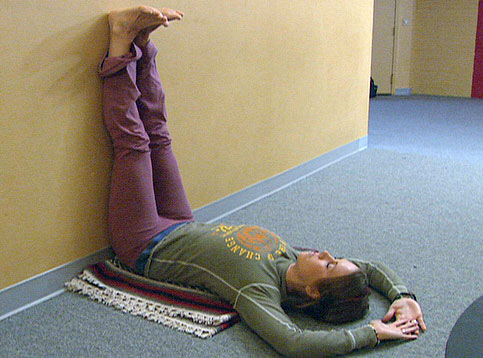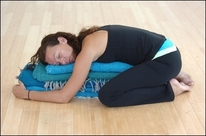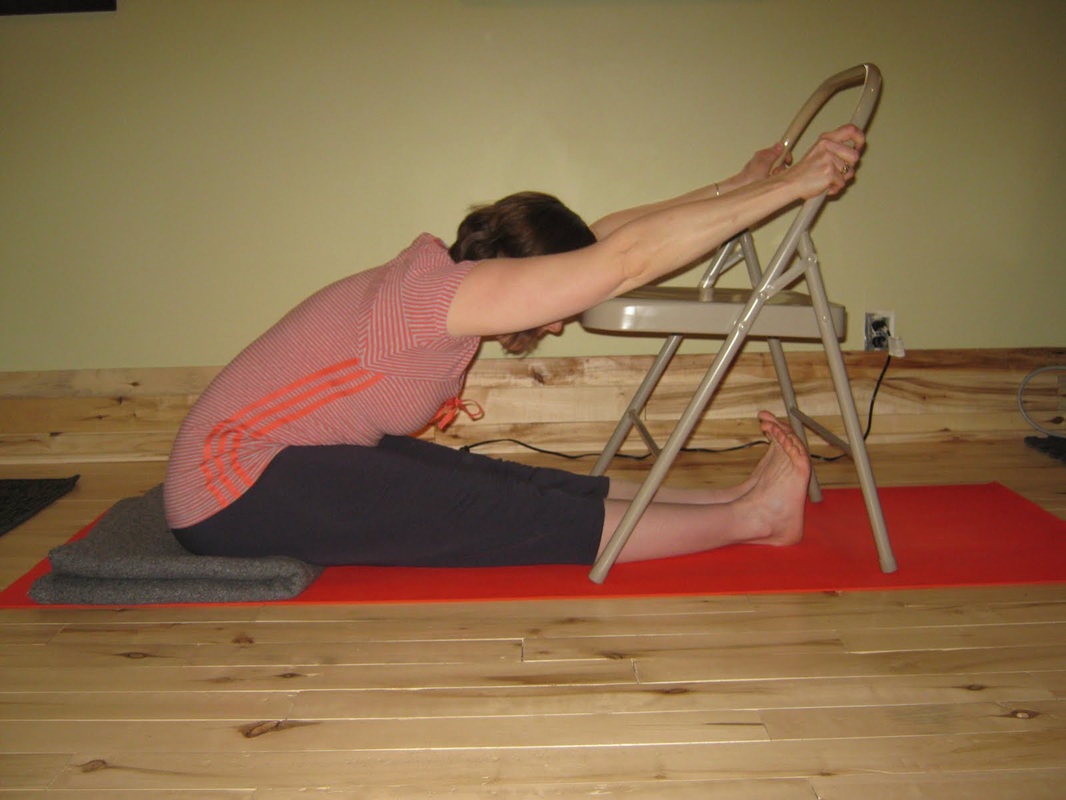(Excerpt from "Everyday Blessings" by Myla and Jon Kabat Zinn. For more tips from the book visit http://www.shantigeneration.com/blog/12-exercises-for-mindful-parenting-by-myla-and-jon-kabat-zinn)
Practice seeing your children as perfect just the way they are. See if you can stay mindful of their sovereignty from moment to moment, and work at accepting them as they are when it is hardest for you to do so.
(Excerpt from "Everyday Blessings" by Myla and Jon Kabat Zinn. For more tips from the book visit http://www.shantigeneration.com/blog/12-exercises-for-mindful-parenting-by-myla-and-jon-kabat-zinn)
0 Comments
"If you have high blood pressure or know you are at risk for it, yoga postures, breathing, and meditation can be powerful tools in your self-care regimen. Several studies have shown that yoga can lead to significant reductions in blood pressure, most likely thanks to its ability to calm stress which can be implicated in the long term development of the disease. " (Carol Krucoff. Yoga Journal. March 2012) Chose daily practices that help you to "undo" the high intensity activities and mental stresses that flood our lives. Find time for quiet, simplicity, and relaxation. Restorative Yoga is a great option. Try to settle into one of more of these poses for 5-10 minutes, cultivating the ability to release tension, slow your breath, and calm the chatter of your mind.
MINDFUL PARENTING TIP OF THE WEEK:
Try to imagine the world from your child's point of view, purposefully letting go of your own. Do this every day for at least a few moments to remind you of who this child is and what he or she faces in the world. (Excerpt from "Everyday Blessings" by Myla and Jon Kabat Zinn. For more tips from the book visit http://www.shantigeneration.com/blog/12-exercises-for-mindful-parenting-by-myla-and-jon-kabat-zinn) This week I come to you with a few words on compassion. I have really seen how compassion is the energy that can really make or break a situation. Compassion by default, breaks down the barriers between humans and allows for us to accept and love humans regardless of how extreme or painful the circumstances. The tendency for most humans when confronted by interpersonal challenges is to defend ourselves and snub the other. We want to be right and the other is wrong. Unfortunately, this is what most of us do. People don't have to deserve our compassion. We can offer it freely and its power is transformational. Learning to have more compassion involves making the radical shift to assume the best in others and sit in their shoes offering them the loving thoughts wishing for their stresses, pains, suffering, and discontent to be relieved.
Jack Cornfield tells us; "Work with compassion practice intuitively. At times it may feel difficult, as though we might be overwhelmed by the pain. Remember, we are not trying to “fix” the pain of the world, only to meet it with a compassionate heart." in most of my classes this week, we will explore compassion. I hope to see you on the yoga mat, and if not, please enjoy the contemplations and meditation exercises below. Here is to a beautiful week filled with compassion! In love, Mayuri CONTEMPLATION OF THE WEEK: COMPASSION Start by examining your feelings when thinking about suffering. Don't sensor yourself, look at this openly and ask yourself freely: Do I want to suffer? Do others want to suffer and where can I see this demonstrated in others lives or behaviors? Do I wish anyone else to suffer? Can I wish to be right without wishing for someone to suffer by default? What is so special about me, that I protect myself and not others? Can I forgive my enemies for being imperfect humans, just like me? You may wish to jot down your thoughts on these questions in a journal. 6 Simple Steps to Compassion Meditation
|



 RSS Feed
RSS Feed